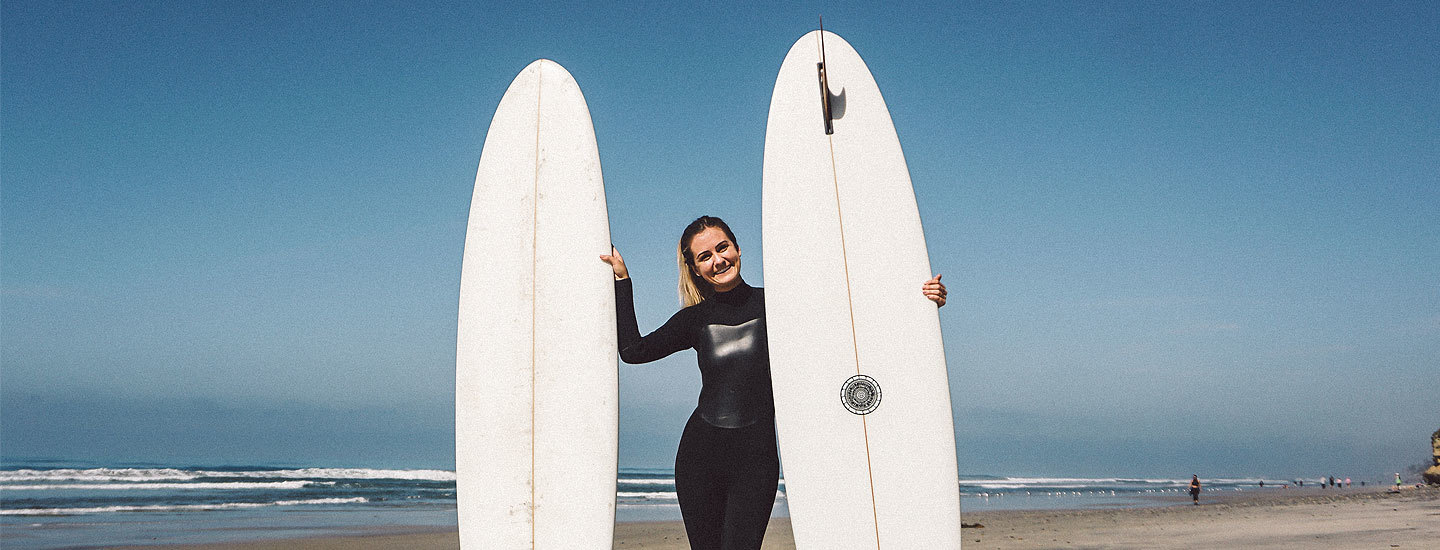
Photo: Jackson Van Kirk
Q: What is your current role with the Surfrider Foundation?
Hi! I’m Kelsey Pickert. I am the Executive Committee Chair of the Surfrider Foundation’s San Diego County Chapter. I am honored to be serving in my second term on the executive committee.
Q: Why and when did you get involved with the Surfrider Foundation?
I got involved with the Surfrider Foundation in 2018. I was fresh out of college and eager to meet like-minded people who not only enjoyed San Diego County’s waves and beaches, but also wanted to protect and care for them in the same way I did.
I also wanted to channel my concern for climate change into something productive. I quickly learned that there is so much more than meets the eye with Surfrider. It started with a beach cleanup, but the more I became involved, the more I learned about the different threats our ocean faces, how vital it is to our environment and lives, and how many people are working together to save it.
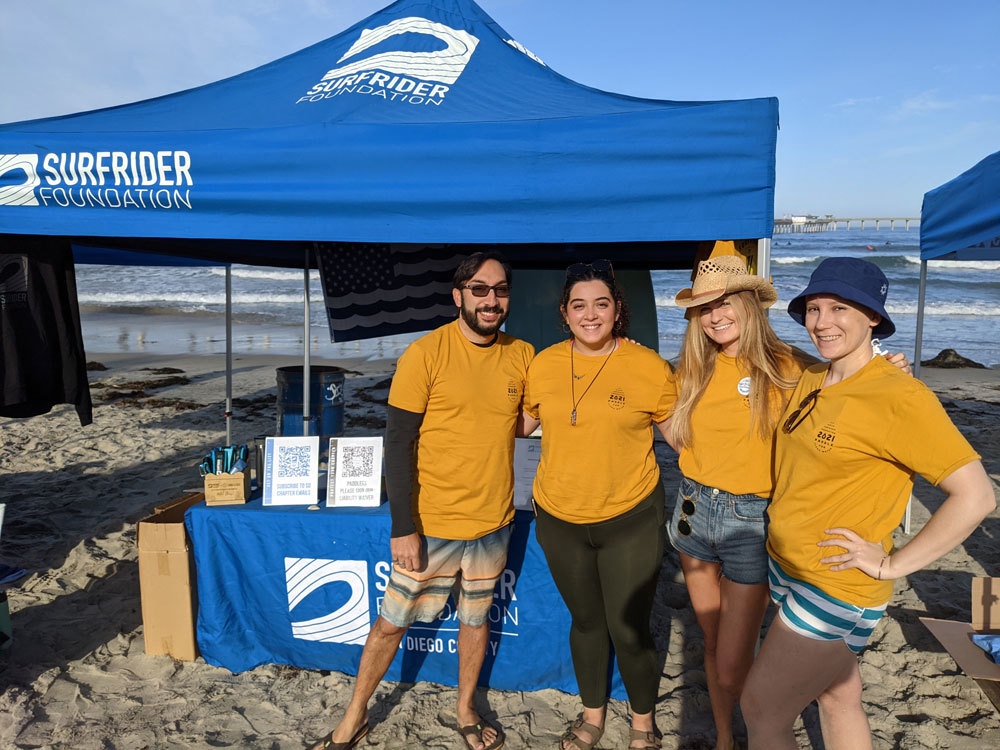
Q: What are some environmental issues that are affecting your local community?
In San Diego County, one of the biggest environmental issues facing our community is the sewage crisis at the Mexico-U.S. border region. In 2022 alone, more than 12 billion gallons of polluted transboundary flows resulted in 166 days of beach closures in Imperial Beach, and 365 days of closures in the Tijuana Sloughs (Sarah Davidson, Clean Border Water Now). This is a major public health crisis that is impacting people and ecosystems on both sides of the border.
San Diego County has over 70 miles of coastline. Volunteers work hard to address issues throughout the county; collecting trash from our beaches through Beach Cleanups, advocating for decarbonization to address Climate Change, reducing single-use plastics through Rise Above Plastics and Ocean Friendly Restaurants, monitoring coastal development for equitable access and responsible mitigation through Beach Preservation, and testing and tracking water quality through the Blue Water Task Force.
All of these programs address issues that threaten our ocean’s health, public access, and environmental quality for future generations.
Q: What Surfrider projects have you worked on? Are there any specific projects that you have worked on which benefited your community?
As an executive committee member, our main purpose is to empower our volunteers, staff and partners with the support and resources they need to execute their work. Some examples include sending a delegation of local volunteers to Washington, D.C. to advocate for federal solutions to water quality issues in San Diego County or supporting the Environmental Center of San Diego in the historic reopening of public access to the Princess Street Trail.
I find our community-building work to be some of the most rewarding. This last year, we celebrated our 30th Annual Paddle for Clean Water. Hundreds of surfers and community members joined us in a paddle around the Ocean Beach Pier to acknowledge past and present activists, reflect on progress made and to call for solutions to the environmental issues still facing our community.
Q: What has been the highlight of your Surfrider experience?
Most of the highlights from my time with Surfrider include witnessing the hard-earned victories of our volunteers and staff. Most notably, after working alongside various coalition partners, Surfrider settled its lawsuit against the U.S. International Boundary and Water Commission in the Spring of 2022 for violations to the Clean Water Act. The settlement includes infrastructure and program improvements at the border that will ensure “over 75% of contaminated pollution flows are reduced year-round” (Clean Border Water Now Lawsuit Settlement, Surfrider Foundation). There is still work to be done to ensure the project is funded and implemented, but the victories are important reminders of the progress that volunteers and staff members have made.
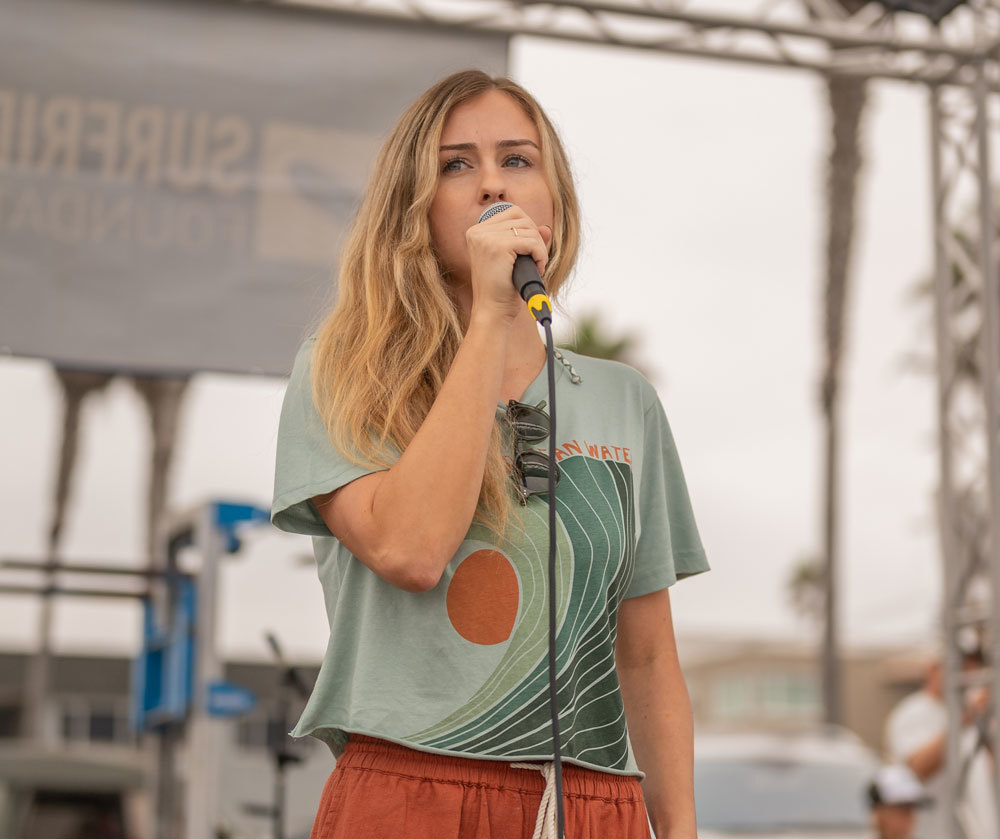
Photo: Brian Good
Q: Do you have any personal experiences or campaigns or issues that you're passionate about where the social justice and environmental movements have intersected?
In San Diego County, we reside on the unceded, ancestral homeland of the Kumeyaay people. They are the original stewards of these lands and waterways, and their relationship with the land and water persists today. It is critical we acknowledge this as an organization and community. Yet historically, redlining and racist deed restrictions systematically denied People of Color fair access to public beaches (Halei Young, The San Diego Union-Tribune). And still today, San Diego’s coastal neighborhoods are predominantly white (2019 U.S. Census Bureau). We cannot have a just environmental movement and ocean community without recognizing and addressing the barriers that exclude community members who are Black, Indigenous, and People of Color.
As Surfrider sets out to more authentically fulfill our mission of protecting our ocean and beaches for all people, a main priority of our chapter has been partnering with and uplifting organizations that have been working to make the region’s surf, outdoor and environmental community more inclusive and diverse - such as Paddle for Peace, Un Mar de Colores, and Native Like Water (to name just a few). It is an honor to partner with them through public events.
Q: What can Surfrider do to foster an inclusive and welcoming experience?
Global change starts locally, and in Southern California, it can start in your local lineup. I believe people deserve kindness and respect, whether they’re new to the beach or have been visiting for decades. Remember, we are all visitors on Native land. Encourage and model respect for the environment and your fellow beachgoers. Look out for one another, and speak out when you see something that’s not right. Listen to the experiences of those who have historically been excluded from these spaces, and commit to doing better.
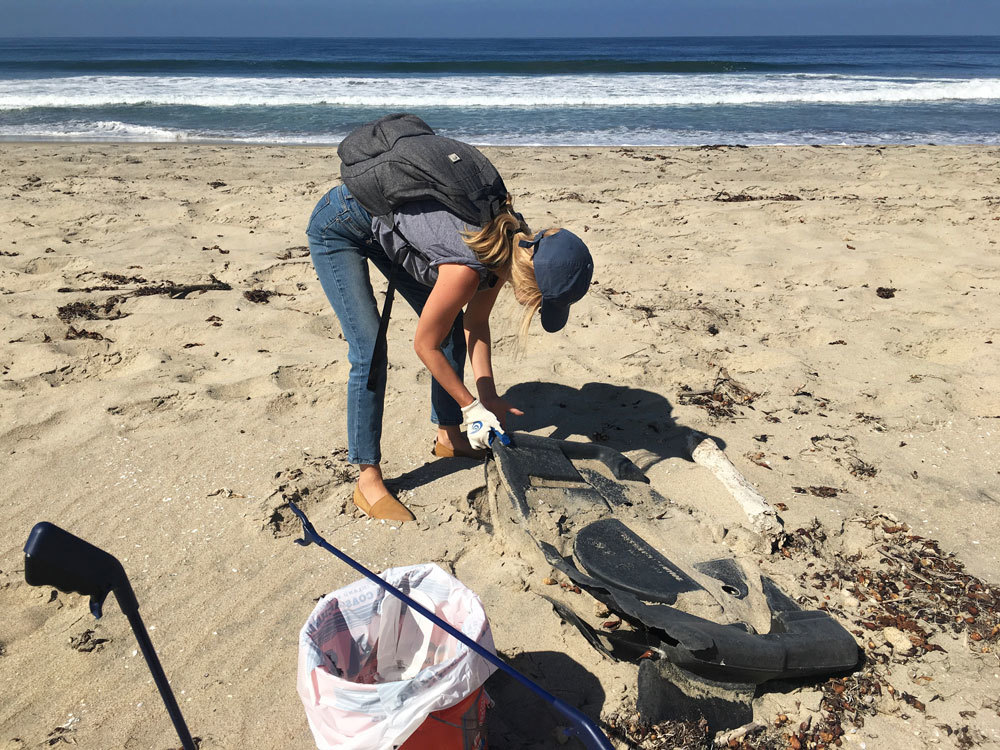
Q: What is the most important thing you tell others about Surfrider?
You don’t have to be an environmental scientist or policy expert to get involved and make a difference. All it takes is care for our environment and the willpower to lend a hand. San Diego County is a watershed that connects all residents, regardless of whether you live 50 miles inland or on beachfront property. Your actions are just as impactful to the health of our ocean and beaches, and you are just as entitled to enjoy them.
Q: Why is being a part of the Surfrider ocean conservation community important to you?
In the wake of a seemingly endless cycle of frightening climate and environmental news, becoming a part of the Surfrider ocean conservation community has given me purpose, direction and the means to make a difference. While individual actions are important, systemic change is what truly tackles large-scale issues, such as plastic pollution.
The collaborative environment that’s been built by Surfrider’s relentlessly caring and driven volunteers inspires me greatly. I’ve made some great friends through this organization, and you can too.
Q: Anything else?
The Surfrider Foundation is a nonprofit, grassroots organization. The work of our volunteers and staff members could not be possible without the support of our community. Please consider making a tax-deductible donation to the Surfrider Foundation of San Diego County Chapter. Thank you!
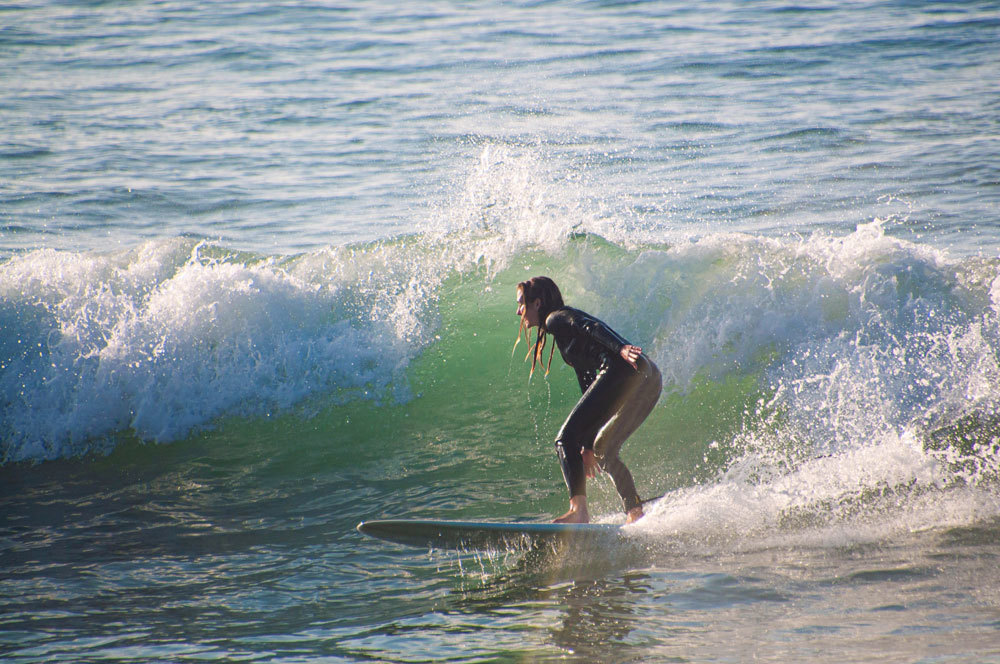
Photo: Sunshine Johnson
